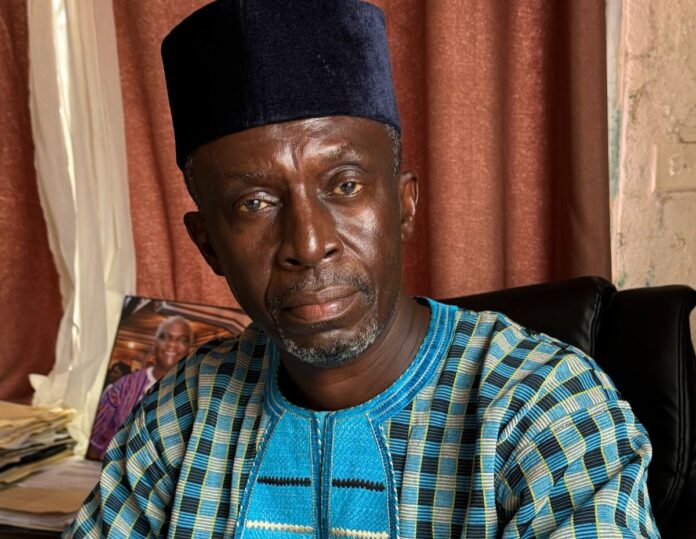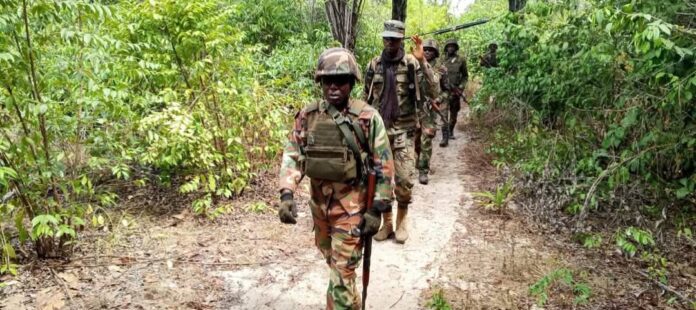MONROVIA – Prominent Liberian lawyer and political advocate, Cllr. Tiawan Saye Gongloe, has sharply criticized President Joseph Boakai’s leadership style, accusing the administration of betraying its campaign promise of “no business as usual” by embracing extravagant lifestyles while ordinary Liberians face deepening poverty and neglect.
In a statement released on April 5, 2025, Gongloe warned that the current administration, despite its promises of reform, has failed to address the country’s most pressing needs, such as improving health, education, and infrastructure.
Gongloe expressed deep concern over the opulent lifestyle of top government officials, particularly President Joseph Boakai, who has been seen riding in a 20-vehicle convoy through the streets of Monrovia. With poverty on the rise and basic services deteriorating, Gongloe emphasized that this show of wealth is a stark contradiction to the harsh realities faced by the Liberian people. “What kind of country is Liberia becoming?” Gongloe asked, adding, “How can we talk about national unity and reconciliation when a tiny group in government enjoys lavish comforts, while the vast majority of Liberians are trapped in heartbreaking poverty?”
The former presidential candidate and human rights lawyer stressed that the priorities of the current government should be redirected to the needs of the people, not the indulgent lifestyle of public officials. He pointed out that Liberia’s status as one of the poorest nations in the world, ranking 8th, was not due to a lack of resources, but rather to decades of misrule and corruption. Gongloe argued that the wealth and opulence displayed by the president and his cabinet members are morally and economically indefensible, especially when many Liberians are unable to afford even a single meal a day.
Addressing the issue of security, which is often cited as justification for the excessive motorcades, Gongloe dismissed the argument that such convoys are necessary for protecting high-ranking officials. Drawing from historical examples, including the overthrow of President William R. Tolbert in 1980 and the assassination of Guinea’s President Alpha Condé, Gongloe pointed out that threats to political leaders often come from within their own security apparatus, not from external forces.
Instead of excessive spending on motorcades and extravagant perks, Gongloe called for a reallocation of these resources to critical sectors such as education, healthcare, infrastructure, and food production. He argued that by investing in these areas, the government would be better positioned to address the urgent needs of the population, thereby avoiding social unrest and fostering national unity.
Gongloe cited examples from other African nations like Botswana, Mauritius, and Rwanda, which have demonstrated that a focus on public investment and responsible governance can lead to lasting economic growth and social stability. He urged Liberia’s leaders to follow suit and prioritize the well-being of the people over their own personal luxuries.
Drawing from his own experiences as a student activist during the 1970s, Gongloe warned that growing frustration among the population could lead to unrest if not addressed. He urged the current administration to act before it’s too late, stating, “The clock is ticking, and the nation’s patience is running out.”
In closing, Gongloe urged President Boakai and other government officials to adopt a more modest approach, redirecting the funds spent on luxurious motorcades and lavish lifestyles to projects that will benefit all Liberians. He appealed to the President to relocate to the Executive Mansion, a more cost-effective and secure option than his current residence, and to reduce the size of his motorcade to no more than five vehicles in Monrovia.
“If we want a Liberia rescued from poverty and stagnation, then invest in the people, not in motorcades and flashy living,” Gongloe declared. “Frugality, not opulence, is the only way forward.”







